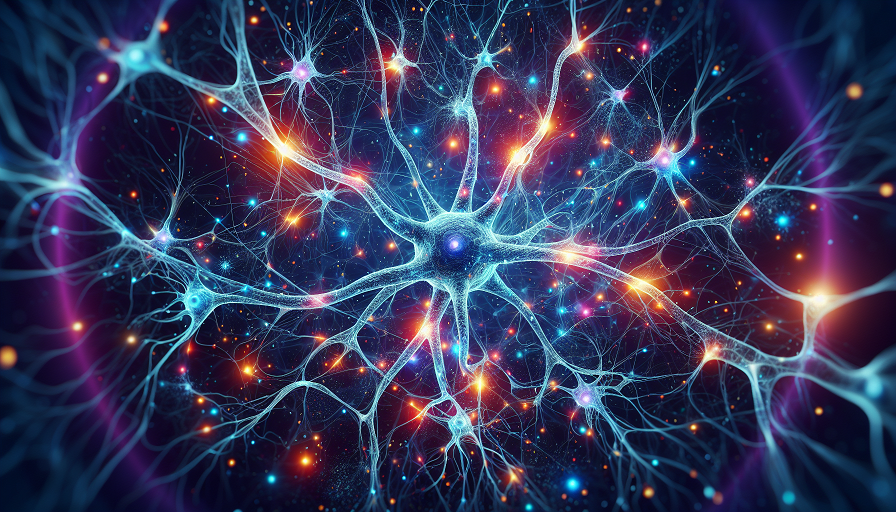
In our fast-paced, technology-driven world, many people are looking for ways to enhance their brainpower and optimize mental performance. Enter the biohackers—a community eager to explore unconventional methods to upgrade the mind. These tech-savvy researchers use a fascinating mix of tools and techniques to boost cognitive abilities. From unique mental exercises and dietary adjustments to cutting-edge supplements, biohackers are on a quest to unlock our brains’ full potential. If you’ve ever wondered how you might give your brain a boost, keep reading to discover some of the modern methods biohackers swear by.
Contents
Understanding Biohacking
Biohacking might sound like something out of a science fiction novel, but it’s very much a part of the real world. Essentially, biohacking refers to the practice of making incremental changes to diet and lifestyle to optimize health and well-being. When it comes to mental performance, biohackers are all about experimenting with different tools to see what works best for boosting brain function, focus, and memory. Think of it as a series of personalized experiments aimed at improving mental acuity.
Meditation: Unlocking Brain Potential
Meditation may be an ancient practice, but it’s experiencing a resurgence in popularity among modern biohackers who are keen on optimizing their mental performance. This is because meditation has been scientifically studied and shown to have several beneficial effects on the brain. It’s known to increase gray matter in areas of the brain associated with learning and memory, as well as emotional regulation. Regular meditators often report feeling more focused, less stressed, and better able to concentrate on complex tasks.
The Role of Physical Exercise
Physical exercise isn’t just for building muscles or losing weight; it’s a powerful tool for brain enhancement too. Regular exercise boosts blood flow to the brain and stimulates the release of endorphins, leading to improved mood and mental clarity. Studies have shown that physical activity can enhance memory and speed up cognitive processes. Biohackers often incorporate specific types of exercise like high-intensity interval training (HIIT) or yoga into their routines due to their profound effects on mental performance as well as physical health.
The Power of Nootropics
Nootropics, often referred to as “smart drugs” or brain supplements, are a big hit in the biohacking community. These are substances that can enhance cognitive function, particularly executive functions, memory, creativity, or motivation, in healthy individuals. Some popular nootropics include caffeine, omega-3 fatty acids found in fish oil, and herbal supplements like ginkgo biloba and Bacopa monnieri.
Many biohackers experiment with nootropic stacks—combinations of two or more supplements—which they believe work synergistically to boost results. However, while there is some scientific support for the effectiveness of nootropics, they aren’t without controversy. It’s crucial for users to approach them with caution, making informed decisions and sticking to recommended dosages to avoid potential side effects. As with any supplement regimen, consulting a healthcare professional is always a wise move.
Brain-Boosting Diet
A balanced diet plays a crucial role in maintaining and enhancing brain health. Biohackers often emphasize the importance of a diet rich in anti-inflammatory and antioxidant foods, which can protect the brain from oxidative stress. Such stress is known to contribute to aging and brain damage. Foods like berries, nuts, leafy green vegetables, and fatty fish high in omega-3 are regular staples in a brain-friendly diet.
- Berries: High in antioxidants which combat oxidative stress.
- Nuts and seeds: Great sources of healthy fats, proteins, and vitamins.
- Leafy greens: Packed with nutrients like folate and vitamin K.
- Fatty fish: Loaded with omega-3 fatty acids crucial for brain function.
Sleep Optimization
One often underestimated aspect of mental enhancement is sleep. Proper sleep is fundamental for optimal brain function, and biohackers are vehement about optimizing their sleep patterns. They use tools such as sleep trackers and apps to monitor sleep quality and duration. Some even engage in polyphasic sleep, which is the practice of breaking sleep into several periods throughout the day, in hopes of maximizing rest and waking productive.
Experimental Technologies
For those keen on cutting-edge technology, there are experimental tools like transcranial direct current stimulation (tDCS) devices. These devices emit low electrical currents to the brain and are believed by some biohackers to enhance learning and memory. While still a contentious area of research, and not entirely understood, some claim to experience heightened focus and cognitive abilities after use.
Moreover, neurofeedback is gaining traction among biohackers. This method involves monitoring brain wave activity and using real-time feedback to teach individuals how to control certain aspects of brain function. Studies suggest it’s promising for improving focus and even for therapeutic purposes, like reducing symptoms of anxiety and ADHD.
Community and Sharing
A fascinating element of the biohacking movement is the sense of community. Biohackers are keen on sharing their experiments and learning from others’ experiences. Whether through online forums, social media groups, or conventions dedicated to biohacking, there’s a wealth of shared knowledge that people can access. This community approach enables biohackers to stay informed about the latest developments and swap tips on enhancing mental performance.
In their ongoing quest for brain optimization, modern biohackers use an intriguing mix of traditional techniques and innovative new methods. Whether it’s through meditation, adopting a brain-friendly diet, or experimenting with nootropics and cutting-edge technology, they’re paving the way towards better mental performance. While not everything may work for everyone, the willingness to explore and customization of different strategies are what make biohacking a unique and evolving approach to brain health.

